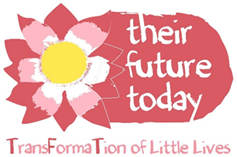A significantly underreported, rapidly deepening, nationwide humanitarian crisis, has hit the island nation of Sri Lanka, leaving 5.7 million people, approximately one quarter of the population, in ur-gent need of assistance, according to current UN reports. Referring to his recent work in Yemen, Somalia and South Sudan, UNICEF spokesperson, Bismarck Swagin, told ABC News that “this is a crisis like no other”, noting that women, children, low-income families and daily-wage earners are bearing the worst of the devastating, nationwide daily struggles.
Grappling to cope with an unprecedented economic crisis, the Sri Lankan government’s ability to import food supplies, fuel and medicines has been gravely curtailed because of heavily de-pleted foreign exchange reserves, a precipitous fall in the value of the Sri Lankan rupee, as well as global supply and inflationary pressures. Food inflation soared to a staggering 54.7% in May, while empty supermarket shelves, daily power outages and extreme shortages of cooking oil, have left 70% of households reporting reduced food consumption.
Already manifesting the 7th worst child malnutrition rate in the world, without immediate assis-tance, rising food insecurity risks worsening maternal and childhood nutrition and further dam-aging the physical and cognitive development of the nation’s poorest children. Compounding this, while parents and teachers struggle in queues lasting for days to buy essential food items and fuel, school attendance is plummeting and the risks of child neglect, abuse and abandon-ment are increasing.
The situation is taking an enormous psychological toll on parents and families, and reports of domestic violence are on the rise, at a time when the continued operation of shelter facilities and access to legal services are also being negatively impacted by the crisis. Meanwhile, the country’s healthcare system is collapsing because of extreme shortages of medicines and medi-cal equipment, daily power outages and the difficulties faced by staff in getting to work. There is simply “nowhere safe to run within the country”, according to Swagin.
The urgent need to highlight the humanitarian crisis now happening in Sri Lanka, cannot be overemphasised. Charities and aid agencies with a presence on the ground, desperately need donations to enable them to provide immediate humanitarian support.
As one of a dwindling number of UK charities that concentrates all its efforts in Sri Lanka, our team at THEIR FUTURE TODAY are out now supporting and providing a lifeline to vulnera-ble women, children and families who are being pushed to breaking point by this crisis. Our aim is simple: from birth to adulthood, we support children across Sri Lanka. From early paren-tal intervention to stop neglect and abuse, through to fostering, adoption and reuniting families, we work tirelessly to make the children of Sri Lanka’s lives better, forever.
During this time of crisis, we continue to work cost-effectively, transparently and with person-alised vision to identify areas of most need, and to actively and directly spend funds raised to achieve maximum benefit for individuals and communities. Our team are on the ground now providing nutritious food parcels, medicines and women’s refuge facilities, to prevent starvation and keep vulnerable children and their families together and with prospects for a better future.
www.theirfuturetoday.org
www.globalgiving.org/projects/feed-and-rebuild-3000-futures-in-sri-lanka/

